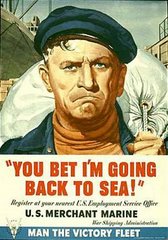Awesome Weapons:: Pentagon holds off on using ray gun to keep order
Pentagon holds off on using ray gun to keep order::Perception of civilian torture feared
Here is the link to this AP article from the Gazette
WASHINGTON - Saddam Hussein had been gone a few weeks, and U.S. forces in Fallujah, west of Baghdad, were being called unwelcome invaders. One of the first big anti-U.S. protests of the war escalated into shootouts that left 18 Iraqis dead and 78 wounded. It would be a familiar scene in Iraq’s next few years: Crowds gather, insurgents mingle with civilians. Troops open fire, and innocents die. All the while, according to internal military correspondence obtained by The Associated Press, U.S. commanders were telling Washington that many civilian casualties could be avoided by using a nonlethal weapon developed during the past decade. Military leaders, including one at Air Force Space Command in Colorado Springs, repeatedly and urgently requested — and were denied — the device, which uses energy beams instead of bullets and lets troops break up crowds without firing a shot. It’s a ray gun that neither kills nor maims, but the Pentagon has refused to deploy it out of concern the weapon might be seen as a torture device. Perched on a Humvee or flatbed truck, the Active Denial System gives people hit by the invisible beam the sense their skin is on fire. They move out of the way quickly and without injury. On April 30, 2003, two days after the first Fallujah incident, Gene McCall, then the top scientist at Air Force Space Command, typed a two-sentence e-mail to Gen. Richard Myers, Joint Chiefs of Staff chairman. “I am convinced that the tragedy at Fallujah would not have occurred if an Active Denial System had been there,” McCall told Myers, according to the e-mail obtained by AP. The system should become “an immediate priority,” McCall said. Myers referred McCall’s message to his staff, according to the e-mail chain. McCall, who retired from government in November 2003, is convinced the system would have saved lives in Iraq.
ray gun that neither kills nor maims, but the Pentagon has refused to deploy it out of concern the weapon might be seen as a torture device. Perched on a Humvee or flatbed truck, the Active Denial System gives people hit by the invisible beam the sense their skin is on fire. They move out of the way quickly and without injury. On April 30, 2003, two days after the first Fallujah incident, Gene McCall, then the top scientist at Air Force Space Command, typed a two-sentence e-mail to Gen. Richard Myers, Joint Chiefs of Staff chairman. “I am convinced that the tragedy at Fallujah would not have occurred if an Active Denial System had been there,” McCall told Myers, according to the e-mail obtained by AP. The system should become “an immediate priority,” McCall said. Myers referred McCall’s message to his staff, according to the e-mail chain. McCall, who retired from government in November 2003, is convinced the system would have saved lives in Iraq.
A few months after McCall’s message, in August 2003, Richard Natonski, a Marine Corps brigadier general who had just returned from Iraq, filed an “urgent” request with officials in Washington for the energybeam device. The device would minimize what Natonski described as the “CNN Effect” — the instantaneous relay of images depicting U.S. troops as aggressors.
A year later, Natonski, by then promoted to major general, again asked for the system, saying a compact and mobile version was “urgently needed,” particularly in urban settings. Natonski, now a three-star general, is the Marine Corps’ deputy commandant for plans, policies and operations. He did not respond to an interview request. In October 2004, the commander of the 2nd Marine Expeditionary Force “enthusiastically” endorsed Natonski’s request. Lt. Gen. James Amos said it was “critical” for Marines in Iraq to have the system. Senior officers in Iraq have continued to make the case. One December 2006 request noted that as U.S. forces are drawn down, the nonlethal weapon “will provide excellent means for economy of force.” The main reason the tool has been missing in action is public perception. With memories of the Abu Ghraib prison scandal still fresh, the Pentagon is reluctant to give troops a space-age device that could be misconstrued as a torture machine. “We want to just make sure that all the conditions are right, so when it is able to be deployed the system performs as predicted — that there isn’t any negative fallout,” said Col. Kirk Hymes, head of the Defense Department’s Joint Non-Lethal Weapons Directorate.
Now- for all of the people who think that carry weapons on the ship is a bad idea- this sort of weapon could be the answer in the future- a non-lethal but extremely painful ray that could deter boarding terrorists and pirates. I think that science will be able to develop small scale versions of this technology within the next 5 years if the pentagon will ever approve of its use. A trial by fire in Iraq could send us into an era of non-lethal combat-- This could help keep our forces overseas out of trouble and it could also be essential in protecting ships.
Got a good sailing story? Some good news about our military?
If anyone has an article you would like to post here please contact us!
Right now I am slacking off on the blog - while working on graduate studies - any news from our readers would be most appreciated!
Maritime Academy Students- need some cash? we will pay for unique articles-
email the webmaster(at)maritimelinks.net







No comments:
Post a Comment